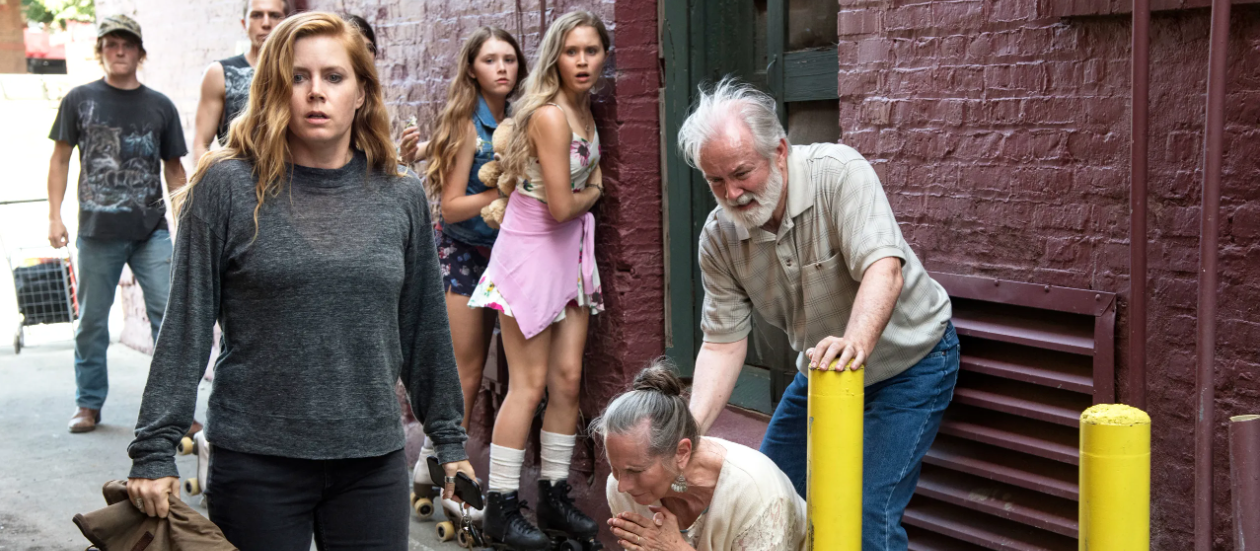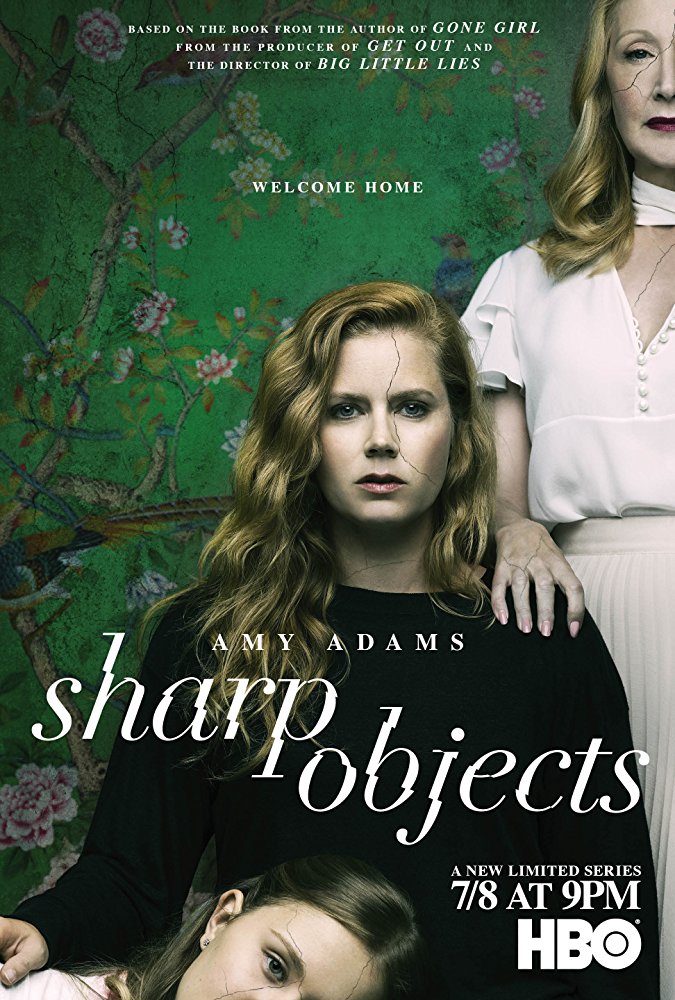

“You’re gettin’ warmer, detective. And not just because it’s hotter than a whore in church today.”
Just prior to the breakout success of the Gillian Flynn–penned Gone Girl, HBO scooped up the oft-optioned rights to her debut novel for adaptation into a limited series. Amy Adams stars as Camille Preacher, an alcoholic, self-mutilating reporter who is sent back to her hometown of Wind Gap, Missouri to write a story about the brutal murder of a young girl. Is the killer from Wind Gap? Is the killer a man? Is the murder connected to the recent disappearance of the girl’s classmate? What about the local urban legend of the “lady in white?”
Upon returning to the rural backwater of her youth and moving into her childhood bedroom, Camille falls under the scrutinizing gaze of her neurotic socialite mother Adora (Patricia Clarkson) and begins to relive traumatic events of her past, including the death of her half-sister Marian (Lulu Wilson), the suicide of her rehab roommate Alice (Sydney Sweeney), and a sexual assault suffered at the hands of teenage boys (young Camille is played by Sophia Lillis). These disturbing memories are returned to repeatedly, but only in brief flashes, neatly diverting our attention and stretching the narrative timeframe from several months to several decades.
In time, Camille grows increasingly involved in the investigation itself, owing to a tentative romance with out-of-town Detective Richard Willis (Chris Messina), and more importantly, a growing friendship with her younger half-sister Amma (Eliza Scanlen), a protean wild child who suffers under their mother’s overbearing care and seeks solace in drugs and late-night parties. Also factoring into the story are the police chief (Matt Craven), a few suspects (Taylor John Smith, Will Chase), Camille’s editor (Miguel Sandoval), and the town gossip (Elizabeth Perkins).
Sharp Objects boasts an incredible diegetic soundtrack, featuring a variety of genres and styles that includes Led Zeppelin, Stevie Ray Vaughan, Johnny Cash, Patsy Cline, Joan Baez, Fairport Convention, M. Ward, LCD Soundsystem, 2Pac, Al Green, Arlo Guthrie, among many others. In all cases that I can recall, these songs come from diegetic sources—Camille’s iPod, stepdad Alan’s (Henry Czerny) high-end stereo, Alice’s earbuds—and serve as pleasant distractions for characters living through a doom-laden scenario.
Adams, Scanlen, and Clarkson stand slightly taller than a thoroughly stellar cast (I thought Taylor John Smith was very good in his few spotlight moments). But the success of the show lies in the steady, confident hand of director Jean-Marc Vallée, who boldly uses montage of both music and image to keep a handful of plates spinning at once—multiple threads in the present as well as numerous haunting memories—building them all up into a distressing, slow burning murder mystery that ultimately feels less about whodunit than whydunit. The way that cryptic memories are awakened by chance and spliced into the present in vague, confused flashes is astoundingly effective.
Though several episodes drag, and the last couple feel a bit contrived, with several characters making uncharacteristic decisions and a few revelations that undercut the verisimilitude of the entire experience, Sharp Objects is engrossing television. I wouldn’t mind seeing more books get the miniseries treatment.